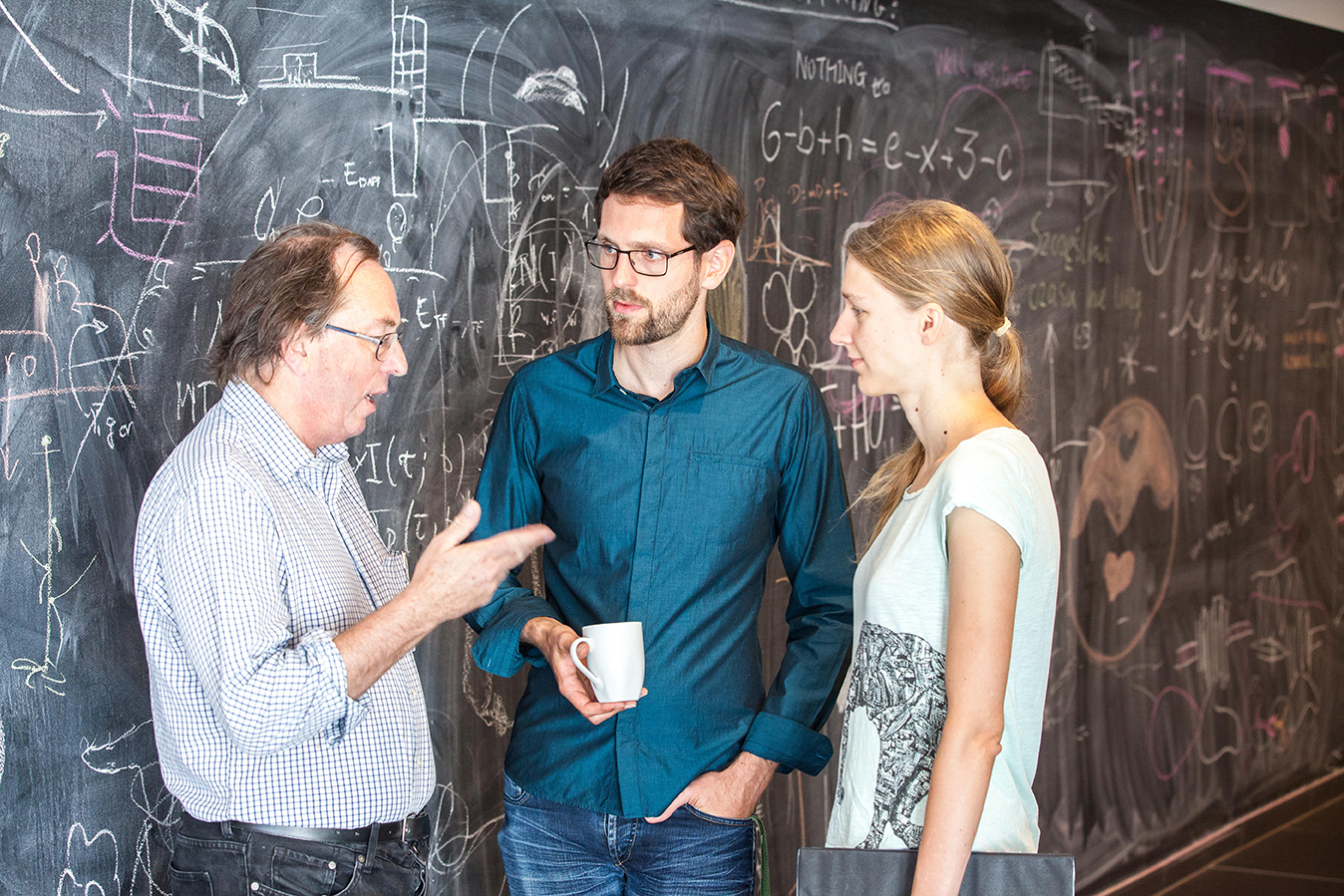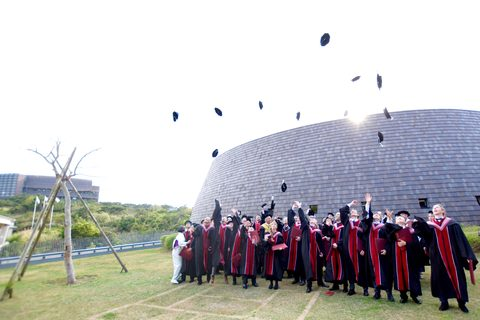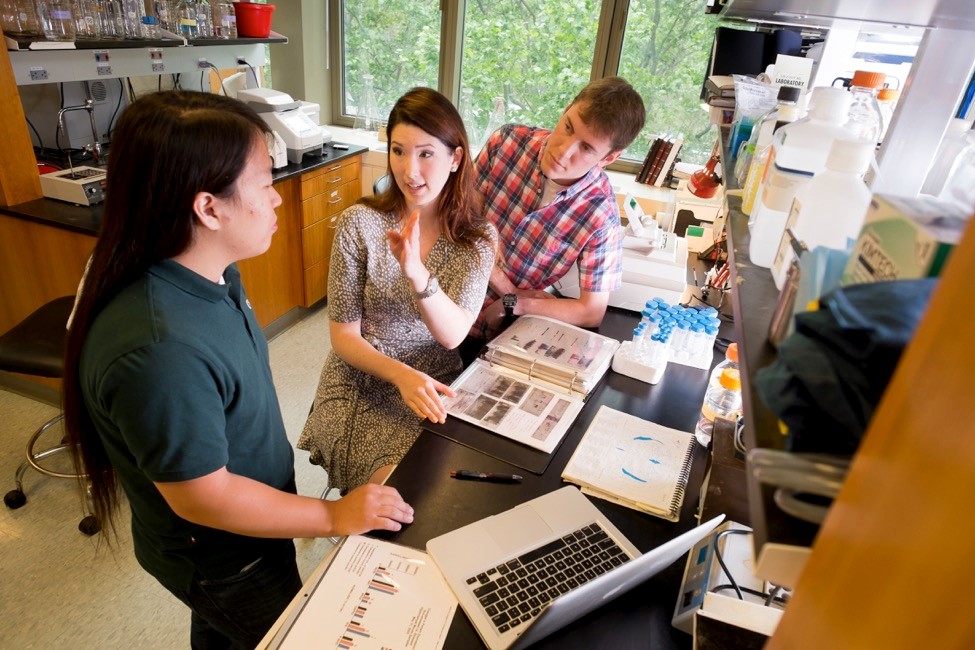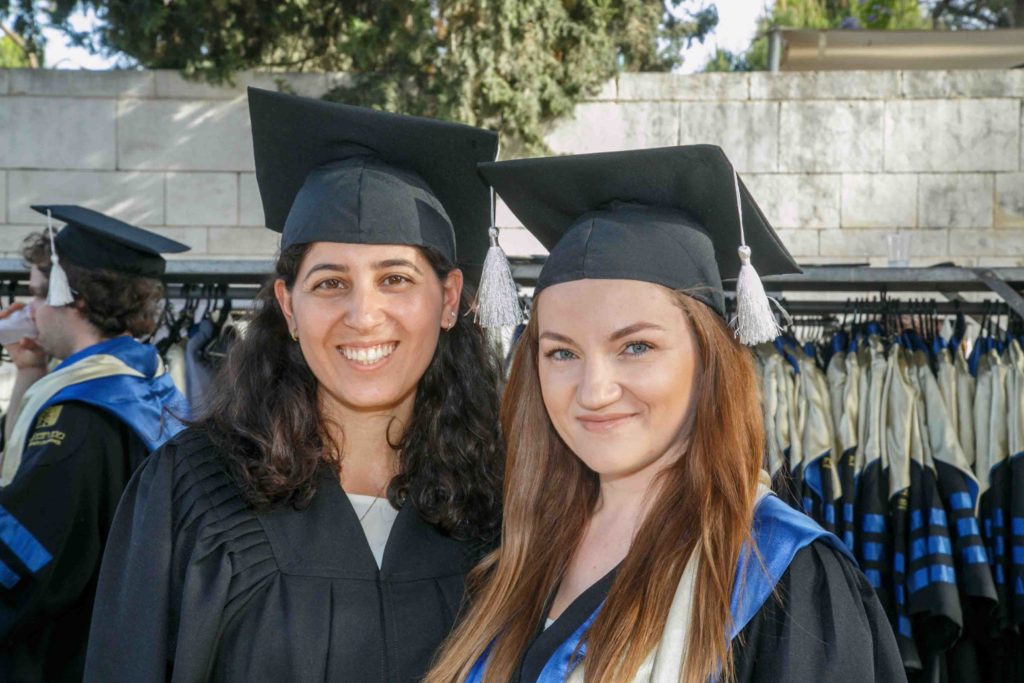The education and training of the next generation of scientists is a core mission of all members of the BRIDGE Network. They have no undergraduate programs and focus on studies for PhD and – in some institutions – for MSc degrees. The programs have several features in common:
- Standards of excellence: the programs offer excellent conditions and require excellent students and work ethics.
- Broad horizon: curricula aim for breadth and depth; interdisciplinary collaborations and projects are encouraged; ethical topics and training of generic skills are important.
- Research driven: students working on their thesis projects are active members of first-rate research groups.
- Global environment: a diverse student body is recruited globally, English is the only language in teaching.
- Structured programs: courses and projects are essential ingredients of the training; studying together strengthens cohort-building and mutual support among students.
- Shared responsibility: programs deviate from the traditional master-apprentice model with admission, quality assurance and supervision shared by faculty.
- Support and guidance: students can get professional advice and counseling in academic and personal matters as needed
Institute of Science and Technology Austria
The Francis Crick Institute
As part of our commitment to train research scientists, the Crick runs a PhD programme for students of all nationalities.
The programme is designed to attract the brightest scientific minds and looks for highly motivated and exceptionally talented people who are keen to embark on their career in biomedical research.

Students accepted onto the Crick PhD programme register with one of our partner universities. They then follow a dedicated four-year programme, agreed with their partner university. Progress is monitored through a series of annual progression points, and students are required to present their research each year. Throughout the PhD programme, students receive tailored training provided by the Crick and their partner university.
Institute of Science and Technology Austria
Educating PhD students is a core mission of ISTA. Its Graduate School offers an interdisciplinary PhD program that supports students in becoming experts in their fields while fostering communication and collaboration across research groups and disciplines. Graduate students are not just the largest group on campus; they are one of the most diverse, both in terms of nationality and background, and in terms of their experiences during their time at the Institute and their contributions as part of the ISTA community.

All PhD students of ISTA are admitted centrally and paid competitive salaries throughout their studies. Applicants need to have obtained a BS or MS degree from another institution.
Currently, PhD students at ISTA can choose from six different tracks of study: biology, computer science, data science and scientific computing, mathematics, neuroscience, and physics. A common core course is designed to encourage communication between fields, and to teach an understanding of how to gain knowledge from data. The three required rotations—short research projects completed with different professors—give students the opportunity to explore several areas, broaden their knowledge, try out a variety of research styles, and get to know potential doctoral supervisors. ISTA also offers internships for students during their Bachelor or Master studies elsewhere, as a great way to gain research experience. Opportunities are available year-round by establishing direct contact to professors, or during the summer ISTernship program.
Okinawa Institute of Science and Technology
The OIST Graduate School accepts 60 students per year, creating a very low student-to-instructor ratio. Students receive support for living costs, health care, housing, childcare, and other needs that would otherwise distract them from their studies. Balancing lectures and lab work, the doctoral program places students in well-funded labs where they work side-by-side with top researchers on state-of-the-art equipment.

Frequent visits from internationally known scientists further enrich the program and provide opportunities for collaboration and exchange. By the time they graduate, students will have accumulated not only abstract knowledge and practical skills but also the kind of professional connections necessary to launch their careers as world-class scientists.
The OIST Graduate School also offers education and research opportunities through a system of undergraduate and graduate placements as research interns under an OIST faculty member. These short-term (up to 6 months) placements provide a select few talented students with opportunities to gain experience in a particular laboratory or to learn a specific technique. Places for research interns are awarded twice a year on a competitive basis.
The Rockefeller University
The university’s David Rockefeller Graduate Program in Bioscience offers about 200 students the opportunity for research and graduate education in the biomedical sciences, chemistry, and biophysics. About two-dozen students are awarded their Ph.D. degrees each year.

The graduate program is flexible and individualized according to each student’s particular needs and academic interests, offering rigorous training and close mentoring by faculty. In partnership with neighboring Memorial Sloan Kettering Cancer Center and Weill Cornell Medicine, Rockefeller also offers one of the nation’s top M.D./Ph.D. programs and a leading chemical biology Ph.D. program.
Rockefeller students pay no tuition, enjoy full financial support, and live in highly subsidized housing on Manhattan’s Upper East Side in New York City.
Weizmann Institute of Science
The Feinberg Graduate School (FGS) is the educational arm of the Weizmann Institute of Science. There is no undergraduate program. The FGS is divided into five schools, each attached to one of the faculties: The André Deloro Research School of Physical Science; the Solo Dwek and Maurizio Dwek Research School of Chemical Science; the Lorry I. Lokey Research School of Biochemical Science; the Ekard Research School of Biological Science; and the Moross Research School of Mathematics and Computer Science.

The FGS accepts, each year, around 300 MSc students and 750 PhD students. In addition, there are around 400 postdoctoral fellows, over half of them foreign. All students receive scholarships so that they may focus on their studies. MSc students often begin their studies with a rotation, working in several labs, but by the time they finish, hopefully to continue on to a PhD, they are expected to be immersed in a lab group, conducting research.
Because Weizmann Institute of Scientist researchers are often involved in collaborative research with groups around the world, there are many opportunities for student exchanges of various sorts. In addition, the Kupcinet-Getz International Summer School is aimed at Israeli and non-Israeli undergraduates.
